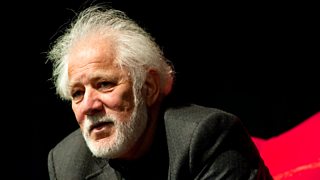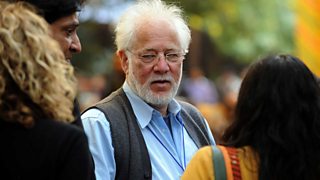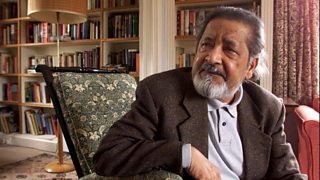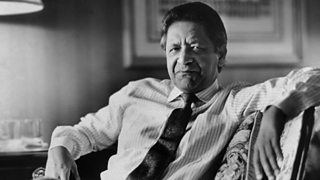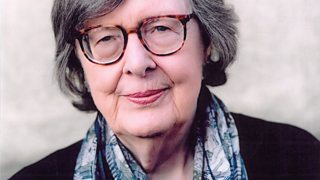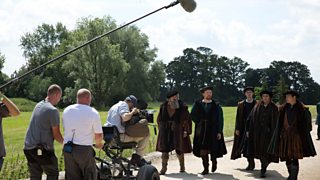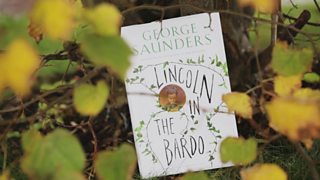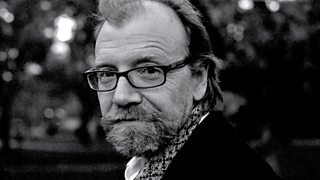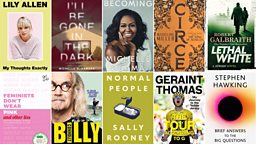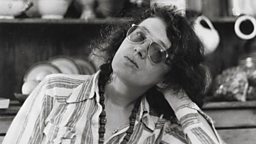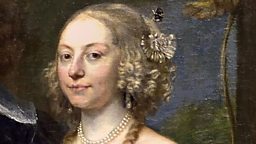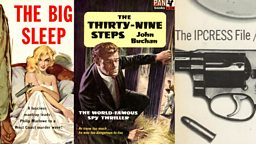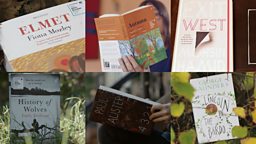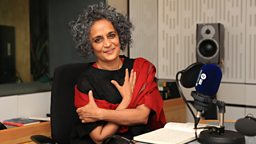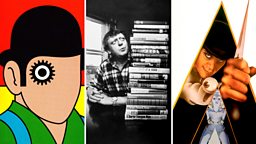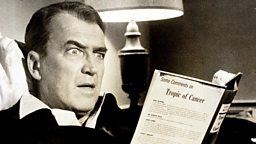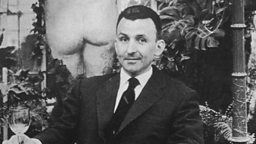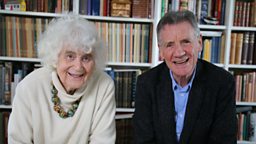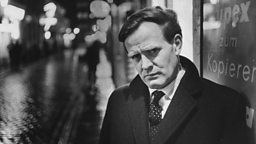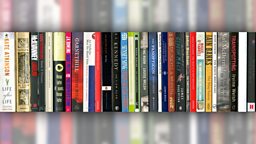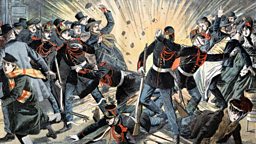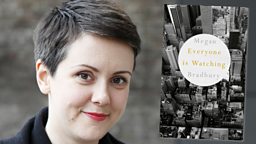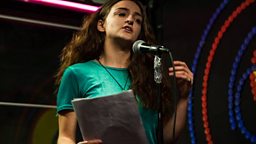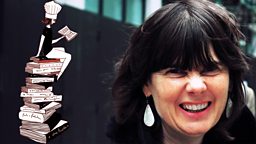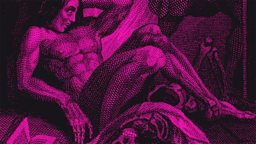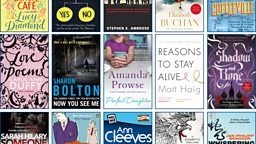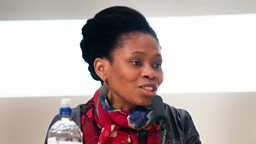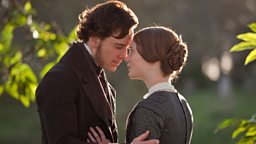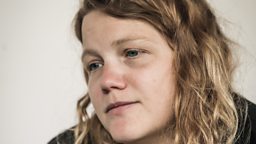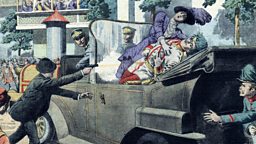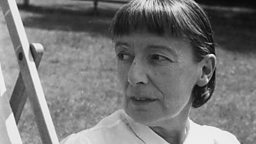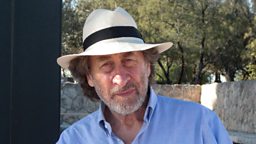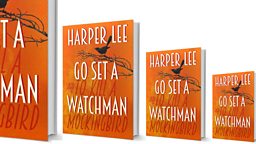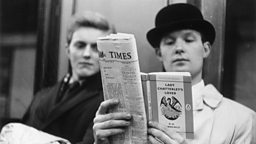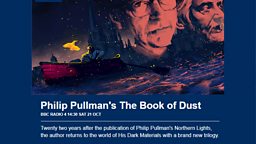The English Patient voted best Man Booker novel of all time
9 July 2018
To celebrate 50 years of the prestigious literary award, a public vote was held to determine the best of the best. The English Patient by Canadian writer Michael Ondaatje was announced as the winner at a celebration at London's Southbank Centre.
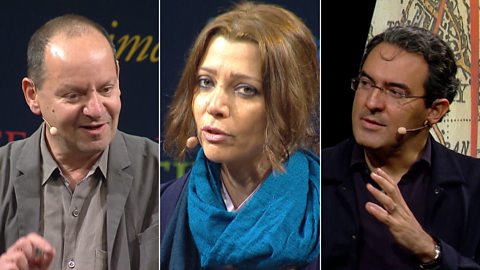
Philippe Sands, Elif Shafak and Juan Gabriel V谩squez: What makes a novel stand the test of time?
The panel discuss what unites the novels chosen for the Golden Man Booker Prize shortlist.
Over the past five decades 51 novels have been awarded the Booker prize (renamed Man Booker in 2002): a prize rewarding the best novel of the year written in English and published in the UK.
To mark the 50th anniversary of the literary accolade the Booker Prize Foundation launched the search for the Golden Man Booker, the best of all the previous prize winners.
Five judges (Robert McCrum, Lemn Sissay, Kamila Shamsie, Simon Mayo and Hollie McNish) were each given a decade of Booker winners and tasked with selecting which novel they felt had stood the test of time and remained relevant to readers.
The shortlist of five novels was revealed at Hay Festival on 26 May and the public were then given the opportunity to vote for their favourite.
when he collected the award. "Not for a second do I believe this is the best book on the list, especially when it is placed beside a work by VS Naipaul, one of the masters of our time, or a major work like Wolf Hall."

The English Patient by Michael Ondaatje (1992)
From the 1990s, novelist Kamila Shamsie chose The English Patient by Michael Ondaatje. Set in Italy as World War Two draws to a close, the novel tells the story of four damaged individuals who inhabit a villa: nurse Hana, maimed thief Caravaggio, bomb disposal expert Kip and the English patient, a nameless burns victim who lies in an upstairs room.
The only clue Hana has to her final patient's past is the one thing he clung on to through the fire – a copy of Herodotus' The Histories , covered with hand-written notes describing a tragic love affair.
The book was adapted into a film in 1996 starring Juliette Binoche, Ralph Fiennes and Kristin Scott Thomas. It won nine Academy Awards, five Baftas and two Golden Globes.
Michael Ondaatje
-
![]()
Bookclub
Michael Ondaatje talks to James Naughtie about his writing methods and his love of poetry.
-
![]()
World Book Club
The Canadian author discusses his Booker winning novel The English Patient.
In a Free State by VS Naipaul (1971)
The novel chosen from the 1970s was In a Free State by the Trinidad-born British author and Nobel Prize winner VS Naipaul. Selected by writer and editor Robert McCrum, the 1971 book is a narrative of emigration, dislocation and dread told through a sequence of five works.
The central story is about two English people taking a car trip through Africa, but the more they travel into the landscape of this unnamed violent country the more they find themselves crossing the line that separates privileged outsiders from horrified victims. Alongside this narrative are four portraits of men seeking liberation far from home, including an Indian servant in Washington and a Asian West Indian imprisoned for murder in a London jail.
VS Naipaul
-
![]()
World Book Club
The author discusses his book A House for Mr Biswas.
-
![]()
Desert Island Discs
Roy Plomley's castaway is writer VS Naipaul.
Moon Tiger by Penelope Lively (1987)
From the Booker winners of the 1980s, poet Lemn Sissay chose Moon Tiger by Dame Penelope Lively. Before her 1987 win with Moon Tiger two of Lively's previous novels had already been shortlisted for the Booker.
It is the story of a famous writer, Claudia Hampton, who spends her final days in hospital recreating her life and her most significant relationships, from her childhood in England after World War One through World War Two to the desert plains of Egypt.
A haunting tale of loss, loneliness and secret desires, Moon Tiger questions memory and personal history, with several scenes portrayed from various characters' different viewpoints, as well as an omniscient narrator.
Penelope Lively
-
![]()
World Book Club
Harriett Gilbert talks to the acclaimed British writer about her Booker Prize winning novel.
-
![]()
Open Book
Mariella Frostrup talks to novelist Penelope Lively about writing both adult and children's fiction.
Wolf Hall by Hilary Mantel (2009)
Broadcaster and novelist Simon Mayo chose Hilary Mantel's Wolf Hall from the Man Booker winners of the 2000s. Set in England in 1520, Wolf Hall chronicles the life of Thomas Cromwell, who works as a clerk for Henry VIII's chief adviser, Cardinal Wolsey, and later succeeds him.
Mantel utilises a vast array of characters to portray Tudor England as an unstable society, with Cromwell at the centre. He's an ambitious opportunist, ruthless in pursuit of his own interests as he navigates the corridors of power in the court.
The work is part of a trilogy. The second instalment, Bring Up the Bodies, also won the Man Booker Prize (making Mantel the first author to win two) and the third, The Mirror and the Light, is due to be published in 2019. Wolf Hall was adapted into a 主播大秀 drama starring Mark Rylance as Cromwell.
Hilary Mantel
-
![]()
Front Row
Hilary Mantel talks to Mark Lawson about her book Bring Up the Bodies
-
![]()
The author discusses the process of adapting her work for TV and theatre.
Lincoln in the Bardo by George Saunders (2017)
From the Man Booker winners of the 2010s poet Hollie McNish chose 2017 winner Lincoln in the Bardo by George Saunders. The novel uses an incident from history as its starting point: President Abraham Lincoln repeatedly visiting the crypt at Oak Hill cemetery to mourn his recently deceased son, Willie.
After his death Willie Lincoln finds himself in a strange purgatory with a multitude of squabbling ghosts who, for one reason or another, are reluctant to make the next step into the afterlife. Unfolding over a single night the novel is ambitious in form, with a dizzying array of voices involved in the battle for Willie's soul.
Much lauded for his darkly satirical short stories, Lincoln in the Bardo was Saunders' first full novel and made him the second American to win the Man Booker since the prize was opened up in 2014 to any book written in English and published in the UK.
